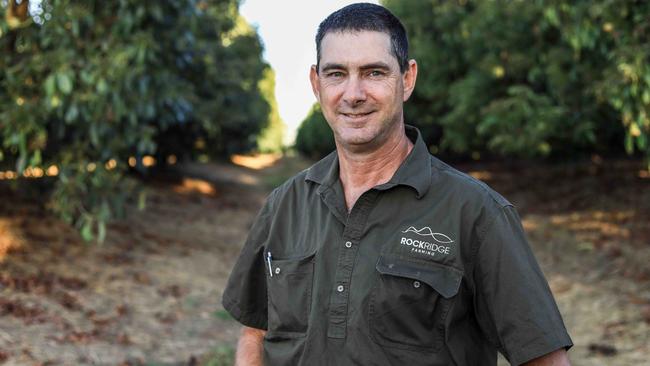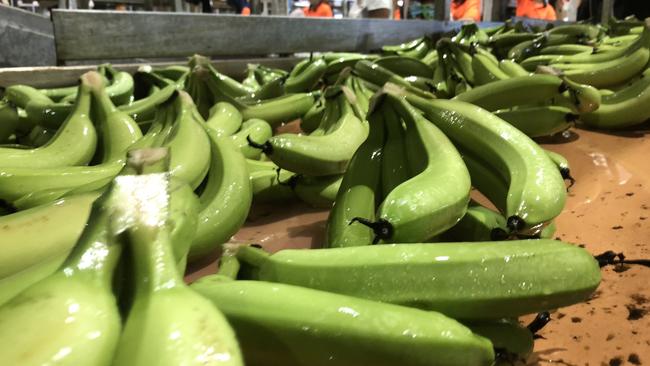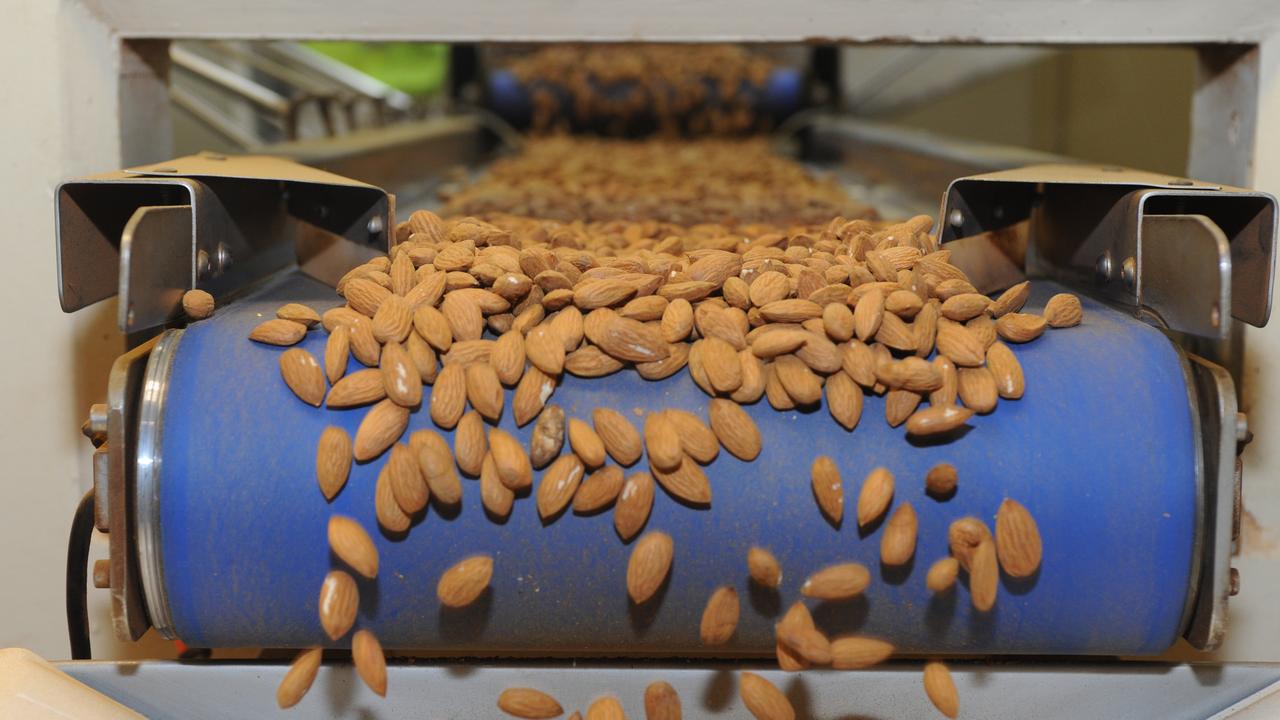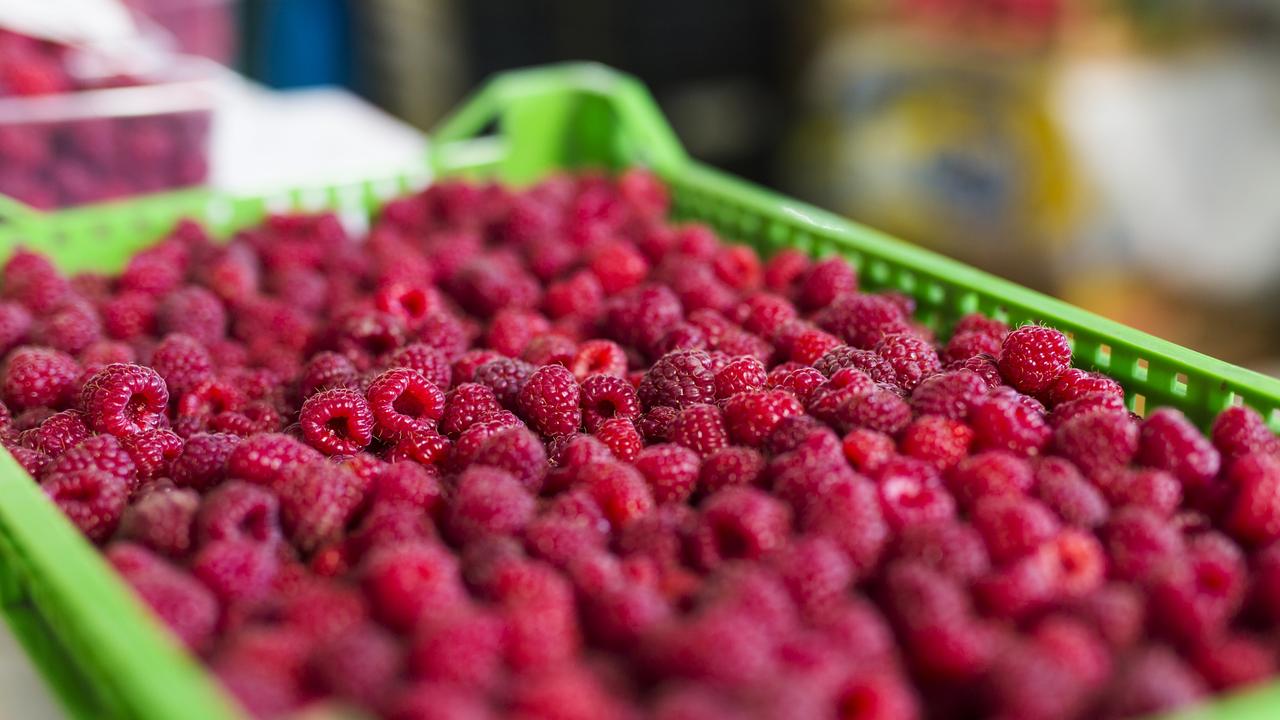Rock Ridge Farming: Innovation is key at avocado and banana farm
Starting from just one 8ha farm, this Queensland avocado and banana farming enterprise has come a long way to the nine-farm operation it is today. Here they explain why innovation is key.

WHEN Rock Ridge Farming in Far North Queensland built a new 5500sq m state-of-the-art avocado packing shed last year, the company ended up re-engineering the completed design.
“(Owner) Peter Howe retrofitted the design to the point the technology firm came back so they could improve their own systems,” explains Rock Ridge Fresh general manager Paul Wilson.
The incident is just one example of the Rock Ridge Farming philosophy: innovative, smart farming.
“Because Peter and (wife) Chelley have three children, two are already on the farm and the third will come back, his philosophy is longevity,” Paul said.
“He wants to pass on the farm to them, to grow the company and industry for the next generation.”
Rock Ridge Farming started from one 8ha farm three decades ago and has grown to six avocado farms, totally 450ha, and three banana farms, totalling 400ha, in a 2000sq km radius.
Avocados are grown in two varieties: Shepard, harvested from late January to mid-April, which requires a more northern, warmer climate; and Hass, harvested from April to early September.
Avocado trees are in varying stages from three years – which harvest about five trays annually, through to six years and older, at peak production harvesting up to 35 trays.
Currently annual yield is half a million trays (trays are about 5kg) and that will increase to 1.5 million trays within five years.
About 1 million cartons (each about 15kg) of bananas are grown annually, in two varieties: Cavendish and lady fingers.
No fruit is wasted with seconds bananas sent to be manufactured into flour; seconds avocados are sent to a sushi franchise and Mexican restaurant chain.

PILING UP
BOTH avocados and bananas are sold to Coles and Woolworths, with Paul predicting an industry oversupply of avocados in the next few years will lead to growing export markets.
Paul started with the company in 2017, when the Howells created their marketing arm, Rock Ridge Fresh, and he now deals directly with Coles and Woolworths.
“Having a marketing arm allows us to control our own product and shorten the supply chain, rather than the supermarkets being two steps removed from the grower.
“It allows them to get what they want, when they want it and how they want it.”
The Howe family have three packing sheds.
The new avocado packing shed, near Atherton, took 12 months to build, including four cold rooms, two loading docks, offices and staff training facility, with Peter retrofitting the standard 20 conveyor drops.
“The technology allowed for avocados to be dropped in bins for sorting but Peter saw that was possibly causing damage and making a premium avocado become a class one, so he retrofitted the whole line,” Paul said.
Paul said they looked at introducing maturity testing in the new shed but were not convinced the technology was up to scratch.
“Maturity testing measures the oil level, which indicates ripeness. It makes it easier for the whole supply chain to know whether the fruit is too soft or too firm. As our volume grows, we have made provisions in the grading line to allow implementation of the inline maturity tester. The technology will probably be viable in a couple of years.”
WASTE NOT
THE packing shed was also fitted for paper liner packaging, dispensing with plastic, which came on the back of the farm’s introduction of five-pack avocados for Coles. “It allows the consumer to use small fruit in a single serve, rather than wasting it or putting it in the fridge, and for us it gave us an avenue for our smaller fruit.”
There are two packing sheds for bananas in the Mareeba region, as an insurance policy should there ever be an outbreak of Panama disease.
The disease — caused by a fungus that lives in the soil — is one of the most severe threats facing the banana industry worldwide, with no cure and no banana varieties resistant. It is currently found in the Tully area of Queensland but not in the region the Howells farm.
Nevertheless Rock Ridge has “followed to the letter” every quarantine measure recommended by Bananas Australia, “and anything else we can think of, because it’s about constant vigilance”.
Paul said they have divided farms into green, amber and red zones for varying quarantine procedures, to isolate soil, with wash stations. Farms are fully fenced to prevent access, there is regular staff training, with up to 400 employees at peak season, and all traffic flow is controlled, with entry to farms by permit only.
SAVING THE REEF
ROCK Ridge farms are certified by Freshcare Environmental, which reviews farm practices.
To minimise use of chemical inputs the Howells use integrated pest management and also employ two agronomists from competing companies “to ensure correct programs are implemented and to prevent overuse of chemicals”.
Before it was an industry requirement, Rock Ridge regulated farm run-off. All farms are laser levelled to direct run-off to sediment ponds, to protect the Great Barrier Reef.
To minimise herbicide use and evaporation, banana plants have leaves and stems mulched for compost, applied to the base of plants.
Avocado trees too are pruned, with the clippings mulched. Although, Paul said, mulch requirements were so high, the Howells have a farm dedicated to hay making.
Grass is allowed to grow among rows to reduce sediment run-off and avoid loss of top soil, while all water is recycled on farm.
MORE


